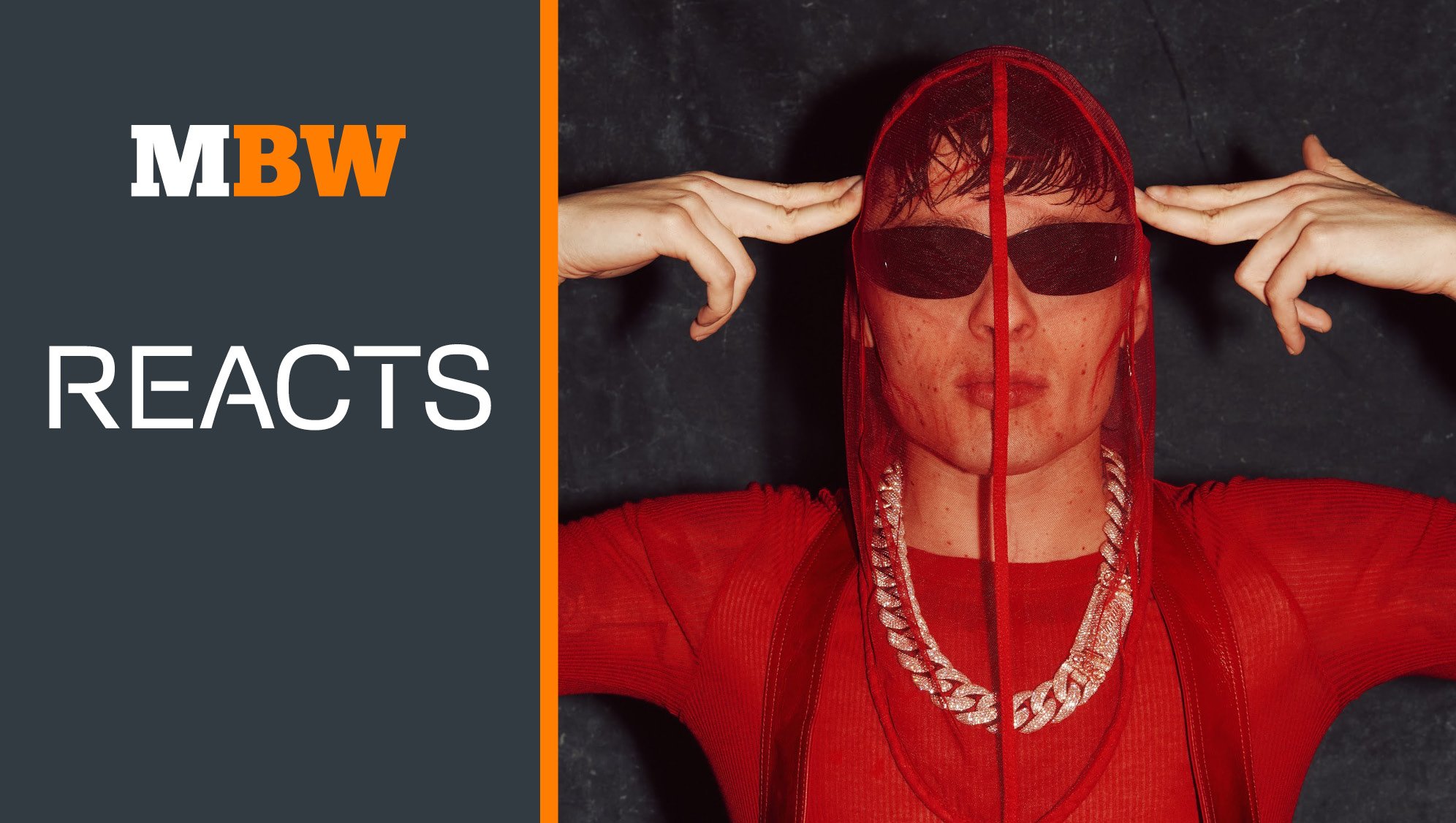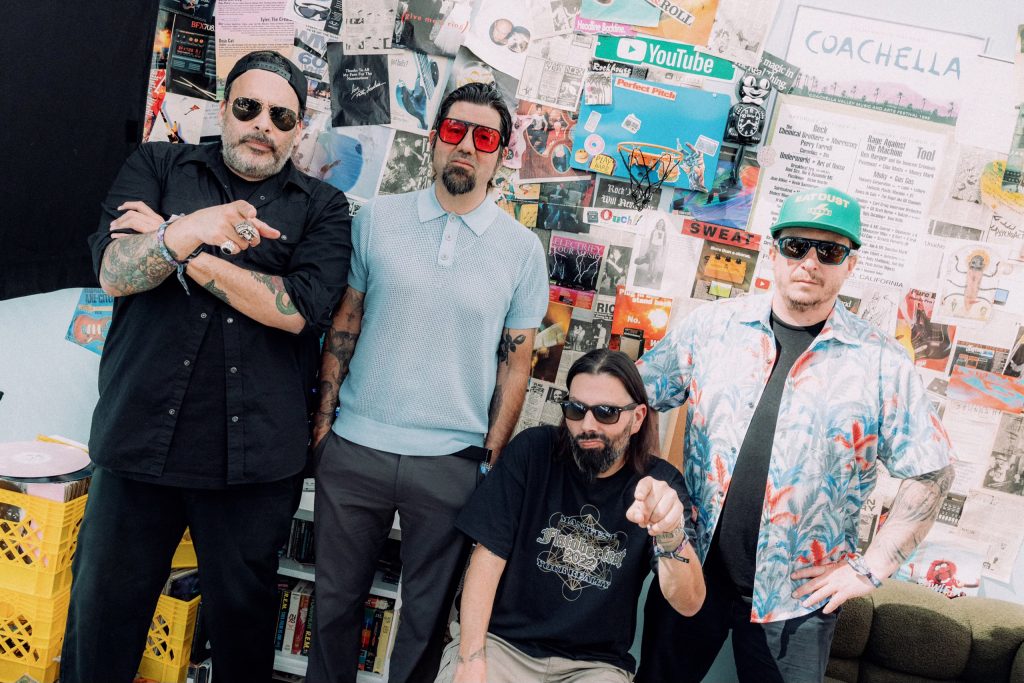“Last Christmas, I gave you my heart. But the very next…” *RECORD SUDDENLY SCRATCHES*
We interrupt this cozy festive tableau to inform you that Universal Music Group/Virgin Music Group has agreed to a $775 million deal to buy services giant Downtown Music. Now, please, return to your celebrations.
Did UMG’s big announcement yesterday (December 16) feel this way to anyone else?
Just us?
The timing may, of course, have been purely coincidental.
Deals of this magnitude are, by their very nature, complicated, and we’re accustomed to seeing them forced over the line just in time for the Holidays. (It’s presumably considered gauche for C-suite execs to still be conducting one’s M&A business on the beaches of St. Barts in early January.)
Yet there’s also that… other possibility.
Universal Music Group might have been eager to squeeze out the Downtown acquisition announcement just as we were all starting to get a little merry and a little sherry(‘d) – thus minimizing the impact of the inevitable backlash from certain businesses.
That backlash arrived today (December 17) regardless, from expected sources.
Echoing the sentiments of IMPALA, Martin Mills, founder of Beggars Group, stated: “This is another step on the road of UMG’s pretense to be the independents’ fairy godmother. But there’s a wolf under that cape.”
He’s an indie pioneer, so Mills can afford to play a little fast and loose with his fairytales (only a badass Fairy Godmother would wear a cape!). But his message is clear: beware the ‘indie’ distribution expansion of the biggest of the ‘Big Three’.
Beyond indie-sector outrage (and the effort to ignite regulatory scrutiny), the proposed Downtown takeover – which UMG anticipates completing in the latter half of 2025 – brings several other intriguing elements to the table.
Four Interesting Elements of the Deal
1) Downtown Music Holdings is about to become… a unicorn 🦄
If UMG/Virgin Music Group’s proposed acquisition of Downtown Music is approved, a number of the latter company’s subsidiaries will become part of the major’s infrastructure. These include:
- B2B music digital delivery specialist FUGA;
- DIY distribution company CD Baby;
- Premium recorded music services division, Downtown Artist & Label Services;
- A prestigious publishing admin company (Downtown Music Publishing, including Sheer in Africa), plus a pub admin platform for DIY-level writers, Songtrust;
- Royalty processing and analytics platform, Curve.
What UMG isn’t purchasing in this deal, however, are any copyrights.
Since 2021, Downtown has transitioned into a ‘pure’ services business, meaning it operates with thousands of artists and songwriters who retain ownership of their musical IP.
“Downtown founder Justin Kalifowitz and his team built a company valued at approximately $1.175 billion since its inception in 2007.”
That’s primarily because, in 2021, Downtown sold its portfolio of owned songs (covering around 145,000 copyrights) to Concord for roughly $400 million.
Thus, the $400 million from the Concord deal, plus the $775 million that Universal/Virgin Music Group is now set to pay for Downtown Music (the services company), culminates in Downtown Music Holdings’ actual exit value of $1.175 billion.
Indeed: Since launching Downtown Music Holdings in 2007, company founder Justin Kalifowitz and his team have officially built a luminous unicorn.
Not too shabby.
2) This is partly about recorded music market share… especially in Latin America
Earlier this year, I penned a piece for MBW+ subscribers detailing the growing distribution market share of the independent recorded music sector compared to the ‘Big Three’ majors.
The central data point in that piece came from Luminate, the industry-standard market monitor for music consumption in the US and globally.
It illustrated that indie distribution growth (at the expense of major music companies) wasn’t merely occurring in the ‘long tail’ – it was having an impact on bigger artists as well.
Luminate’s midyear statistics revealed that indie-distributed tracks accounted for one in every ten tracks (9.9%) that had been streamed over 500 million times in the US during H1 2024 (see below).
This 9.9% figure represented a significant increase from 7.1% in the same period of the previous year.
In simpler terms, the major music companies had lost nearly 3% of US market share for tracks streamed over 500 million times (per half-year) over just 12 months.
This isn’t solely a US phenomenon, of course.
Midia Research stats show that the global distribution share of non-major music companies (including labels distributed by indies plus self-releasing artists) reached 36.7% in 2023 ($12.9bn vs. total revenues of $35.1bn).
This indie global market share percentage has steadily increased year-on-year over the past decade – at the expense of the majors.
An acquisition of Downtown’s ‘Artist & Label Services’ division would offer Virgin Music Group a notable advantage in one particular region.
Downtown’s A&LS division has experienced particular success in Latin America, with a specific drive in the Musica Mexicana market.
Currently, A&LS distributes Musica Mexicana artists including Beto Vega, plus labels like Alzada Music (home to the late Lefty SM, along with Yoss Bones), Delux Music Group (Daniel Garcia and Erick B), and Master Q (Los Tucanes de Tijuana).
In March, Downtown’s A&LS division reported generating an average of 200 million streams in the Musica Mexicana genre per day – up 65% YoY.
“There’s ample room for growth in Latin America… We are optimistic about our prospects there.”
JT Myers, Virgin Music Group, speaking last year
(Downtown’s expertise in Musica Mexicana similarly extends to its publishing division, which renewed its partnership with long-time client Peso Pluma and his Double P label in August.)
This time last year, MBW interviewed Virgin Music Group co-heads, JT Myers and Nat Pastor. We highlighted how far behind VMG was compared to rival The Orchard in Latin America in terms of market share.
“Kudos to The Orchard for identifying an opportunity before anyone else, and yes, we have catching up to do,” commented Myers.
“However, there’s ample room for growth in Latin America, and we’ve made significant strides. We remain positive about our prospects there.”
Universal’s Strategic Challenges
3) Universal will need to carefully consider how to integrate Downtown into Virgin (and UMPG) while still growing its own margin
It’s common knowledge that Universal Music Group has communicated to investors its goal of achieving an adjusted EBITDA margin of 25% in the next 2-3 years.
It’s making headway. In the first nine months of 2024, that adjusted EBITDA margin stood at 22.2%, up from 21.4% during the same period last year.
A cost-saving initiative at UMG is currently in progress and is consistently aiding in enhancing this figure.
The inclusion of Downtown Music will undoubtedly drive substantial market share gains for UMG in both recorded music distribution and publishing (see pt.2 above).
However, how will it affect Universal’s overall margin profile?
Downtown, like the majority of services businesses, functions on a single-digit margin.
According to sources speaking to Billboard, Downtown’s recent annual gross revenues were estimated at around $900 million, with net revenues (i.e., after paying copyright-holding clients) at $130 million.
Finally, after taking Downtown’s operating expenses into account, the annual EBITDA lands at approximately $40 million.
Can Universal, through Virgin Music Group and Universal Music Publishing Group, uncover enough synergies to significantly enhance Downtown’s profitability profile?
Alternatively, might the Downtown acquisition compel UMG to modify its own EBITDA margin target to accommodate the advantages of this new acquisition?
(Noteworthy: Downtown recently informed Billboard that its publishing sector is projected to generate over $200 million in gross revenue in 2024, representing a 40% increase YoY.)
On the flip side, could Downtown’s integration into Universal’s Virgin Music Group (VMG) actually create new margin-accretive opportunities?
For example: how many current VMG clients globally could be ‘upsold’ to utilize Curve Royalty Systems, a renowned music royalty processing/management platform acquired by Downtown last year?
In a similar vein, Downtown introduces a fresh opportunity for VMG in FUGA.
The self-proclaimed ‘largest full-service B2B music distributor in the world’, FUGA may enhance VMG’s digital supply chain efficiency and draw new clients into the VMG realm.
FUGA currently collaborates with over 1,000 esteemed indie labels worldwide, including Beggars Group, Domino, Epitaph, and Armada.
Its absorption into VMG may provide a practical ‘funnel’ through which Virgin can initiate an arm’s length relationship with an unreached indie client base.
On the contrary, if these indie clients decide to exit the UMG/Downtown ecosystem (refer to Martin Mills’ comments regarding UMG/Downtown), it might also create an opportunity for FUGA competitors like SESAC-owned AudioSalad.
4) What will become of CD Baby?
To sum up much of the above: profit margin challenges notwithstanding, acquiring Downtown presents Virgin Music Group (VMG) and Universal Music Publishing Group (UMPG) with an evident opportunity to increase market share… while potentially also augmenting VMG’s service offerings.
Nevertheless, there is one element of Downtown Music that may not adapt well to the Virgin/Universal framework: CD Baby.
This DIY distribution platform, a competitor to TuneCore and DistroKid, was servicing more than 2 million self-releasing ‘creators’ as of last November, encompassing over 20 million tracks.
Regular followers of MBW will recognize that UMG chief, Sir Lucian Grainge, hasn’t exactly been the staunchest advocate for DIY distribution platforms to date.
Notably, Grainge has driven ‘artist-centric’ reforms at streaming platforms that – for instance – now prevent indie tracks from earning any royalties until they reach 1,000 streams annually on Spotify.
The result: ‘artist-centric’ models divert royalty micro-payments away from artists with just a few listeners, favoring artists with larger fan bases.
“The groups expressing concern about ‘artist-centric’ (streaming royalties) are understandably those whose business model is built on being merchants of garbage. Sorry, I can’t really think of a more appropriate term for content that no one actually wants to listen to.”
Sir Lucian Grainge on certain DIY platforms, October 2023
Summarizing his general stance on low-streaming DIY music, Grainge noted in October 2023 that those companies challenging ‘artist-centric’ changes at streaming platforms were “unsurprisingly those whose business model is based on being merchants of garbage”.
Virgin Music Group leaders JT Myers and Nat Pastor subsequently informed MBW in Q4 of last year that they had “no intention” of entering the DIY distribution sector for similar reasons.
Myers stated: “Major labels were previously criticized for ‘throwing a bunch of s–t against the wall and seeing what sticks’ (as they would sign numerous artists, and only a select few would succeed).
“Well, the (DIY aggregation realm) casts an even wider net. It’s not why we entered the music business.”
CD Baby, therefore, is an incongruous cultural fit within UMG… and acquiring it won’t significantly enhance Universal’s EBITDA margin.
Nevertheless, Downtown perceived considerable value in CD Baby, investing approximately $200 million to acquire it through parent AVL Digital in 2019.
All things considered… if I were a betting individual, I’d wager that, should regulators authorize UMG’s acquisition of Downtown next year, we’ll see Universal subsequently attempt to divest CD Baby to: (a) a private equity purchaser, or (b) a company keen to specialize in the realm of self-uploading amateur artists.
Who knows? Perhaps that company could be Believe… once the small matter of UMG’s $500 million lawsuit against the French firm is sorted out, of course.
4 observations on… Downtown’s agreed $775 million sale to Universal Music Group/Virgin Music Group





